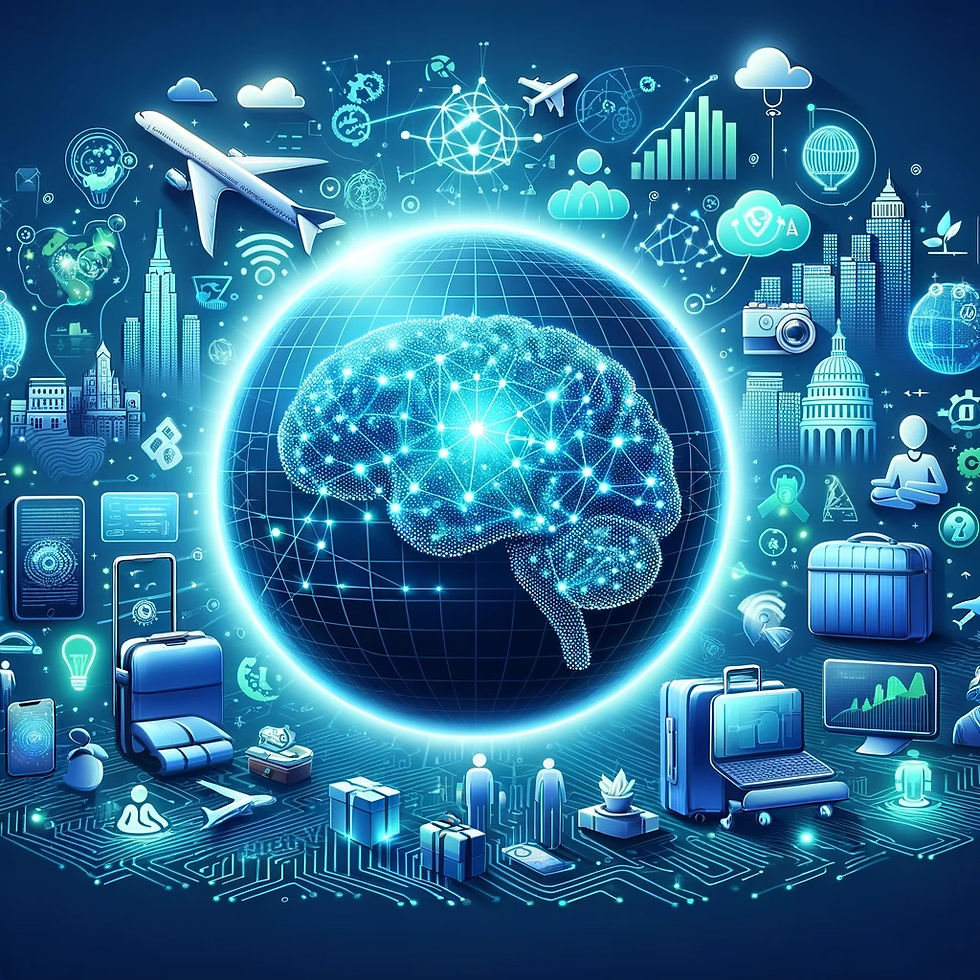Revolutionizing Tourism Marketing: The Power of Big Data and AI
- URPEAK
- Mar 1, 2024
- 2 min read
In the rapidly evolving landscape of tourism, the integration of Big Data analytics and Artificial Intelligence (AI) stands out as a groundbreaking approach. This innovative fusion is setting a new standard for personalized tourism experiences, offering a treasure trove of opportunities for tourism professionals and academics alike. Here, we explore how these technological advancements are not just reshaping tourism marketing strategies but are also paving the way for a more sustainable, efficient, and customer-centric future in the industry.
The Dawn of Predictive Personalization
Imagine a world where travel suggestions are so tailored to individual preferences that the need for search becomes almost obsolete. This is not a distant dream but a reality being shaped by AI's ability to sift through vast amounts of data. For instance, companies like Expedia are leveraging AI to refine search results for users, significantly boosting booking conversions. By predicting potential interests based on past behaviors and preferences, tourism marketers can craft compelling, personalized offers that resonate deeply with their audience.
Dynamic Pricing: A Game Changer
The dynamic pricing models employed by airlines and hotels exemplify the sophisticated use of Big Data and AI. By adjusting prices in real-time based on various factors such as demand and competition, these sectors optimize revenue and improve service occupancy. This model can be extended to tour packages and attractions, offering a competitive edge to those who adopt it, ensuring they stay ahead in the market's ebb and flow.
AI-Powered Customer Service: Raising the Bar
Customer service has been transformed with the advent of AI chatbots, providing instant, personalized assistance. KLM Royal Dutch Airlines’ "BlueBot" is a prime example, helping customers effortlessly navigate booking tickets and inquiries. This level of immediate and customized service sets a new benchmark in customer engagement, one that every tourism entity can aspire to for improved satisfaction and loyalty.
Virtual and Augmented Realities: Enhancing Experiences
The British Museum's use of AR technology to enrich visitor experiences offers a glimpse into the potential of VR and AR in tourism. These technologies can bring destinations to life long before a traveler sets foot there, offering immersive previews and interactive information that significantly enriches the travel planning process and the journey itself.
Championing Sustainable Tourism
Perhaps one of the most compelling applications of Big Data is its role in promoting sustainable tourism. By analyzing visitor flow data, destinations like Venice are pioneering efforts to manage tourist numbers and mitigate environmental impacts. This data-driven approach to dispersing tourist traffic and promoting off-peak visits is crucial for preserving the world's treasures for future generations.
A New Era for Tourism
The integration of Big Data and AI into tourism marketing is more than just a trend; it's a revolution that offers a blueprint for the future. These technologies promise a level of personalization, efficiency, and sustainability previously unimaginable, making them indispensable tools for tourism marketers aiming for excellence. As we stand on the brink of this new era, the possibilities for innovation and growth in tourism are boundless. For professionals and academics in the field, the journey towards a smarter, more connected tourism industry is just beginning, and the road ahead is filled with promise.






Comments